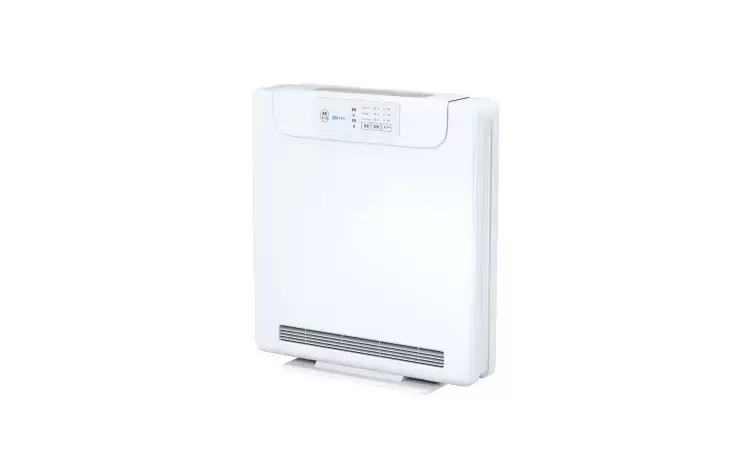- Home
- Medical news & Guidelines
- Anesthesiology
- Cardiology and CTVS
- Critical Care
- Dentistry
- Dermatology
- Diabetes and Endocrinology
- ENT
- Gastroenterology
- Medicine
- Nephrology
- Neurology
- Obstretics-Gynaecology
- Oncology
- Ophthalmology
- Orthopaedics
- Pediatrics-Neonatology
- Psychiatry
- Pulmonology
- Radiology
- Surgery
- Urology
- Laboratory Medicine
- Diet
- Nursing
- Paramedical
- Physiotherapy
- Health news
- Fact Check
- Bone Health Fact Check
- Brain Health Fact Check
- Cancer Related Fact Check
- Child Care Fact Check
- Dental and oral health fact check
- Diabetes and metabolic health fact check
- Diet and Nutrition Fact Check
- Eye and ENT Care Fact Check
- Fitness fact check
- Gut health fact check
- Heart health fact check
- Kidney health fact check
- Medical education fact check
- Men's health fact check
- Respiratory fact check
- Skin and hair care fact check
- Vaccine and Immunization fact check
- Women's health fact check
- AYUSH
- State News
- Andaman and Nicobar Islands
- Andhra Pradesh
- Arunachal Pradesh
- Assam
- Bihar
- Chandigarh
- Chattisgarh
- Dadra and Nagar Haveli
- Daman and Diu
- Delhi
- Goa
- Gujarat
- Haryana
- Himachal Pradesh
- Jammu & Kashmir
- Jharkhand
- Karnataka
- Kerala
- Ladakh
- Lakshadweep
- Madhya Pradesh
- Maharashtra
- Manipur
- Meghalaya
- Mizoram
- Nagaland
- Odisha
- Puducherry
- Punjab
- Rajasthan
- Sikkim
- Tamil Nadu
- Telangana
- Tripura
- Uttar Pradesh
- Uttrakhand
- West Bengal
- Medical Education
- Industry
HEPA air cleaners may improve indoor air quality and benefit COPD patients: Study

Delhi: An environmental intervention study by Nadia N Hansel and team has revealed potential health benefits of portable HEPA air cleaners among former smokers with COPD, particularly among those with greater adherence and spending a greater time indoors.
The findings of the study are published in the American Journal of Respiratory and Critical Care Medicine.
3.2 million people have died from chronic obstructive pulmonary disease (COPD) worldwide, an increase of 11.6 percent compared with 1990. Indoor particulate matter is associated with worse COPD outcomes. It remains unknown whether reductions of indoor pollutants improve respiratory morbidity. Dr. Hansel and the team aimed to determine the efficiency of HEPA air cleaners in controlling COPD.
The study was a blinded randomized controlled trial that included eligible former smokers with moderate-severe COPD who received active or sham portable HEPA air cleaners and followed for six months. The primary outcome was a six-month change in Saint George's Respiratory Questionnaire (SGRQ). Secondary outcomes were exacerbation risk, respiratory symptoms, rescue medication use, and Six Minute Walking Distance (6MWD). Intention to treat analysis included all subjects and per-protocol analysis included adherent participants (greater than 80% use of air cleaner).
A total of 116 participants were randomized of which 84.5% completed study.
The results of the study were
• There was no statistically significant difference in the total SGRQ score.
• The active filter group had greater reduction in SGRQ symptom subscale (ß -7.7) and respiratory symptoms (BCSS, ß -0.8); and lower rate of moderate exacerbations (IRR 0.32).
• Rescue medication use (IRR 0.54) compared to sham group.
• In per-protocol analysis, there was a statistically significant difference in the primary outcome between the active filter vs. sham group (SGRQ β-4.76) and in moderate exacerbation risk, BCSS, and 6MWD.
• Participants spending more time indoors were more likely to have treatment benefits.
Hansel and the team concluded that "This is the first environmental intervention study conducted among former smokers with COPD showing potential health benefits of portable HEPA air cleaners, particularly among those with greater adherence and spending a greater time indoors."
Reference:
The study titled, "Randomized Clinical Trial of Air Cleaners to Improve Indoor Air Quality and COPD Health: Results of the CLEAN AIR STUDY," is published in the American Journal of Respiratory and Critical Care Medicine.
DOI: https://www.atsjournals.org/doi/10.1164/rccm.202103-0604OC
Medical Dialogues consists of a team of passionate medical/scientific writers, led by doctors and healthcare researchers. Our team efforts to bring you updated and timely news about the important happenings of the medical and healthcare sector. Our editorial team can be reached at editorial@medicaldialogues.in.
Dr Kamal Kant Kohli-MBBS, DTCD- a chest specialist with more than 30 years of practice and a flair for writing clinical articles, Dr Kamal Kant Kohli joined Medical Dialogues as a Chief Editor of Medical News. Besides writing articles, as an editor, he proofreads and verifies all the medical content published on Medical Dialogues including those coming from journals, studies,medical conferences,guidelines etc. Email: drkohli@medicaldialogues.in. Contact no. 011-43720751


